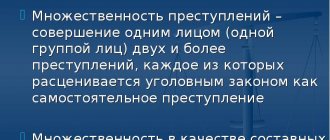Types of justice activities
Having considered the concept of justice, we need to study its types of activities in more detail. Justice includes the following activities:
- consideration and resolution of civil cases;
- consideration of criminal cases and the application of penalties established at the legislative level to persons guilty of committing criminal acts or the acquittal of innocent people.
In addition to courts of general jurisdiction, arbitration and constitutional courts operate in Russia. Their activities are also related to the implementation of legal processes. Arbitration judicial bodies deal with the consideration and resolution of economic disputes and other issues within their competence. The activities of the Constitutional Court are not covered by the concept of justice.
In addition to all of the above, justice should include the consideration of administrative cases. In addition, according to the current legislation, the activities of magistrates are also justice.
System of principles of legal proceedings and criminal procedure
The main signs of justice
In accordance with Article 118 of the Constitution of the Russian Federation, justice can be administered exclusively by the judiciary. The administration of justice is carried out strictly in accordance with certain procedural rules established at the legislative level. They are spelled out in documents such as the Code of Criminal Procedure, the Arbitration Procedure Code and the Code of Civil Procedure of the Russian Federation.
The justice process is carried out in compliance with certain principles. They are called constitutional or legal.
In essence, the principles of justice are ideological ideas characterized by a high degree of generality. They determine what should be and what is in the construction and work of justice bodies. The main features of justice are:
- I sign. Principles are ideological ideas that, on the one hand, are objective in nature, dictated by the laws of development of society and nature, and on the other hand, society influences their understanding, formulation and interpretation;
- II sign. Principles are ideas regarding what is and what should be. The principle of functioning of justice should be based on an ideal version of structure or action. Both legislators and practicing judges must adhere to this order;
- III sign. The principles are intended to characterize the organization and activities of the judiciary. The principle contains an ideal and real scheme of the process of execution of judicial power;
- IV sign. The principles of justice must be enshrined and manifested in law. The principle can be materialized in the form of concrete activities of justice through law. The form of manifestation and enshrinement in law can be different. The law can only name a principle or reveal its content.
The principles of justice are enshrined in various legislative acts of the Russian Federation, including the Constitution. The principles are not enshrined in the by-laws, since the above documents are not endowed with sufficient legal force.
Role and significance
System objectives:
- Impartiality.
- Coercion by necessity.
- Making decisions on the implementation of the legitimate interests of individuals and organizations.
- Settlement of socio-economic and political disputes.
- Formation of modern social science in conjunction with other sciences.
- The activities of government agencies are carried out only in a certain way, in accordance with the law. This rule allows the interested party to prepare to defend their interests and comply with their rights and obligations.
- Formation of human rights functions that establish equality of citizens.
- Impact on society in order to bring it to certain structural and functional characteristics. Necessary to establish order, morality, justice.
- Assistance in creating partnerships and developing ethics in the business world in accordance with the agro-industrial complex.
- Creating a law-abiding model of citizen behavior.
All these are measures to ensure the security of people and the country. However, the types of justice that exist today are not always legal.
System of principles of justice
The concept and types of crimes against justice according to the Criminal Code of the Russian Federation, Chapter 31
Each individual principle characterizes the facets of justice. In general, the principles of justice form a system. There are different types of justice, but the principles for them are the same. The basic principles of the justice system include:
- Compliance with laws and strict adherence to them. This is a universal principle that applies to every area of legal activity. In this context, the concept of law refers to all legal acts that make up the regulatory framework. It must be understood that the hierarchy of these acts must be observed. If there are contradictions, then an act with greater legal force is used;
- Justice can only be administered by the judiciary. This means that no other state or public body has the right to resolve such issues;
- Independence of judges. In simple words, the court must make a decision based on the requirements of the law, its internal convictions and conscience. Judges are protected from any pressure. All of the above is secured through certain means: from the ban on interference in the activities of the court to high financial support;
- The administration of justice on the principle of equality of all citizens before the court and the law. This principle is established by the Constitution of the Russian Federation. It is enshrined in Article 19 of this document. Origin, religious views, social status and other circumstances should not matter to the court;
- Ensuring the right to judicial protection. This principle is also enshrined in the Constitution, namely Article 46. In accordance with it, every citizen has the right to protection of rights and freedoms. According to Article 47 of the Constitution of the Russian Federation, no one can be deprived of the right to judicial protection. Thus, the court does not have the right to refuse to consider any case without the presence of circumstances;
- Opportunity for citizens to participate in court proceedings. According to Article 32 of the Constitution, Russian citizens have the right to participate in justice. A striking example of this is a jury trial. It must be said that persons over 25 years of age who have no criminal record can be invited as jurors. They are not required to have legal training. The basic requirements are: selflessness and impartiality;
- Openness of courts or the principle of transparency. The Constitution requires that all judicial proceedings be conducted in public. Exceptions are cases provided by law. This principle allows for control over the judiciary. Open consideration is a guarantee of the absence of abuse of power and negligence on the part of judges. The exception to the principle of publicity is regulated by Article 241 of the Code of Criminal Procedure of the Russian Federation. A court hearing may be held behind closed doors if the following circumstances exist: consideration of the case in open mode may lead to the disclosure of state secrets, the subject of consideration is a case of a criminal offense committed by persons under 16 years of age, there is a possibility of disclosure of information about intimate life, which will lead to to humiliation of honor and dignity (in simple words, rape cases can be considered in a closed court session). In addition to all of the above, the court may be closed to ensure the safety of the participants in the process and their loved ones. Despite the fact that the court may be closed, the verdict is fully or partially announced in an open hearing. In some cases, only the introductory and revolutionary parts of the verdict are available to the general public;
- Protection of legitimate interests of citizens. The main component of this principle is the presumption of innocence. According to Article 49 of the Constitution, every accused person is considered innocent by default until proven otherwise in court. This principle is enshrined in many legislative acts: Article 10 of the Code of Criminal Procedure of the Russian Federation (no one can be detained on suspicion of a crime in the absence of legal grounds for this. Determining such a measure is the prerogative of the court), Article 11 of the Code of Criminal Procedure of the Russian Federation (court, prosecutor, inquirer, investigator are obliged to explain to the participants in legal proceedings their rights and obligations), Article 12 of the Code of Criminal Procedure (inspection of a suspect’s home can only be carried out with his consent or in the presence of an appropriate court decision), Article 13 of the Code of Criminal Procedure (secrecy of telephone correspondence and other conversations is the right of every citizen. The reverse is only possible if there is a corresponding court decision), Article 16 of the Code of Criminal Procedure (the accused has the right to the protection of a professional lawyer). In some cases, a lawyer is provided free of charge. It must also be said that a person does not have to prove his innocence. The state prosecutor must prove his guilt;
- Equality of the parties or the principle of competition. According to Article 123 of the Constitution of the Russian Federation and Article 15 of the Code of Criminal Procedure, legal proceedings are carried out on the basis of adversarial proceedings between the parties. The functions of defense and prosecution cannot be assigned to one body. At the same time, the court is not a body of criminal proceedings. He cannot act on one of the sides.
In addition to all of the above, it is necessary to note the principle of the national language of legal proceedings. The process is conducted in Russian, as well as the languages of the republics that are part of the Russian Federation. In the Supreme Court, proceedings are conducted only in Russian. This also applies to military courts.
From all of the above, it becomes clear that justice is a type of activity that no state or public structure has the right to influence. Its functioning is based on a lot of different features. The goals of justice are its purpose: a complete comprehensive and objective consideration of all cases, as well as the implementation of the constitutional rights of citizens to judicial protection. As an indirect goal, one can highlight the formation of trust and respect for the justice authorities.
The concept of justice and its signs
The main, main content of the judiciary is the administration of justice. The Constitution of the Russian Federation speaks about justice repeatedly and in connection with different legal situations:
- Part 5 of Article 32 of the Russian Constitution establishes the right of citizens to “participate in the administration of justice”;
- Part 2 of Article 50 prohibits “the use of evidence obtained in violation of federal law” in the administration of justice;
- Article 52 is dedicated to the protection of the rights of victims from crimes and abuses of power and states: “The state ensures that victims have access to justice and compensation for damage caused”;
- Part 1 of Article 118 of the Constitution contains the most important legal provision for the judiciary: “Justice in the Russian Federation is carried out only by the court.”
Russian language experts S.I. Ozhegov and N.Yu. Shvedova define “justice as the activities of the judiciary; fair resolution of a case or dispute.”
The concept of justice is, first of all, a legal concept. Therefore, its definition and main elements must be based on relevant legal norms and institutions.
Justice , one of the areas of state activity called law enforcement, is one of the most important powers of the judiciary. It occupies a central place both in the system of law enforcement and in the powers of the judiciary. The administration of justice is manifested in decision-making on fundamental issues of the implementation of socio-economic, political and personal rights and freedoms of man and citizen, the rights and legitimate interests of state and public institutions.
Justice is administered only by the court (judge) and, therefore, represents a type of state activity in which judicial power is exercised. The administration of justice is the exclusive competence of the court. Only justice has the final say when declaring a particular person guilty and assigning him a punishment.
Justice is characterized by a special procedural order; this type of state activity can only be carried out in specific ways, in compliance with a special order (procedure), regulated in detail by law, establishing the procedure for the court to consider and resolve specific cases, decisions on which only the court has the right to make. This procedure ensures the rights and legally protected interests of those who are affected by the activities of the court and who participate in this court case. Justice is law enforcement activity based on strict compliance with laws. Judges administering justice are independent; they are subject to the Constitution of the Russian Federation and laws. Justice in its true sense occurs when the court has correctly identified all the relevant circumstances for a given case and accurately applied the law, making a fair decision on this basis. If the court makes a decision that is contrary to the law (for example, it condemns an innocent person for a crime), then this is not justice, but lawlessness, arbitrariness.
Justice, from a legal and moral point of view, is justice based on the law. The trial and resolution of cases in court is a way of administering justice.
In accordance with Art. 4 of the Federal Law “On courts of general jurisdiction in the Russian Federation” courts of general jurisdiction consider:
- all civil and administrative cases on the protection of violated or disputed rights, freedoms and interests protected by law, with the exception of cases that, in accordance with the legislation of the Russian Federation, are considered by other courts;
- all criminal cases;
- other cases assigned to their jurisdiction by the Constitution of the Russian Federation, federal constitutional laws and federal laws.
This article most correctly defines the methods (paths) of administering justice in civil and criminal cases at the present time.
Justice is carried out by considering specific cases in court sessions and making appropriate decisions by the court. The court conducts the hearing under the guidance of a professional judge. It involves those citizens and organizations who are interested in the outcome of the case - the parties enjoying equal procedural rights. At the court hearing, evidence is examined in order to establish the true circumstances of the case. The court hearing ends with a decision in a civil case or a verdict in a criminal case. These court decisions are usually called acts of justice. Acts of justice - decisions on specific cases adopted by courts within their competence have generally binding force. They (according to the terminology of procedural legislation) come into force after the expiration of the period for appeal (10 days) or after confirmation of correctness by a higher court.
A decision in a civil case and a sentence in a criminal case, from the point of view of their binding nature, are equal to the law.
The execution of sentences in criminal cases and decisions in civil cases is ensured, in particular, by the possibility of using state coercive measures. Acts of justice, in accordance with the law, are endowed with special properties, one of them is that they are generally binding on everyone and throughout the entire territory of Russia; failure to execute them or obstruction of their execution may entail the application of various types of sanctions against those who are guilty of this, up to imprisonment.
The traditional concept of justice, based on the norms of legislation on the judicial system, included only the activities of courts to consider and resolve civil and criminal cases. However, at present, due to the increasing role of the judiciary in regulating public relations, the question arises about the essence of the activities of courts considering cases of administrative offenses.
In accordance with Art. 23.1 of the Code of Administrative Offenses, cases of certain offenses of this type are subject to consideration by courts (judges). In the specialized literature, very opposing views are expressed regarding the nature of the activities of the court considering cases of administrative offenses.
It should be noted that the range of cases of administrative offenses under the jurisdiction of judges is very narrow, and the procedure for their consideration by a judge is simplified. Therefore, the issue of administrative justice required an appropriate legislative solution. In this case, it is necessary to take into account the provisions of Art. 118 of the Constitution of the Russian Federation, which talks about administrative proceedings. In this regard, on September 15, 2015, the Code of Administrative Procedure came into force.
In accordance with Art. 4 FKZ “On Arbitration Courts in the Russian Federation” and Art. 1 of the Arbitration Procedural Code of the Russian Federation, arbitration courts administer justice by resolving economic disputes and considering other cases within their competence by relevant laws. Arbitration courts are judicial bodies that are part of the judicial system of the Russian Federation, they are guided by the Arbitration Procedural Code of the Russian Federation, apply substantive law, guided by the principle of legality, consider arbitration cases with the participation of the parties in court hearings; judicial acts of these courts have generally binding force. Thus, the activity of arbitration courts represents the administration of justice and has all its characteristics.
Taking into account these distinctive features, justice can be defined as law enforcement activities carried out by the court to consider and resolve civil, criminal, arbitration and administrative cases subordinate to the courts, while strictly observing the requirements of the law and the order established by it, ensuring the legality, validity, fairness and generally binding nature of court decisions.
In connection with the provisions of Art. 118 part 2 of the Constitution of the Russian Federation, which talks about the exercise of judicial power “through constitutional, civil, administrative and criminal proceedings,” the question arises about the existence of such a type of justice as constitutional justice. The use of this concept seems legitimate, but taking into account the fact that the competence of the Constitutional Court of the Russian Federation and its acts in their content differ significantly from the law enforcement acts of all other courts.
Legal proceedings and justice are close concepts, but do not coincide, because the former can end without the implementation of justice.
The qualitative difference between the content of the activities of the Constitutional Court of the Russian Federation and the activities of other courts administering justice is that the latter apply laws to specific situations based on their constitutionality, and the Constitutional Court of the Russian Federation controls the compliance of normative acts with the Constitution of Russia or verifies the constitutionality of the law applied or subject to application in proceedings in a specific case – Art. 125 of the Constitution of the Russian Federation. The Constitutional Court of the Russian Federation cannot be considered a higher court or be attributed to any level of the judicial system. But its powers extend to the sphere of activity of all courts.






